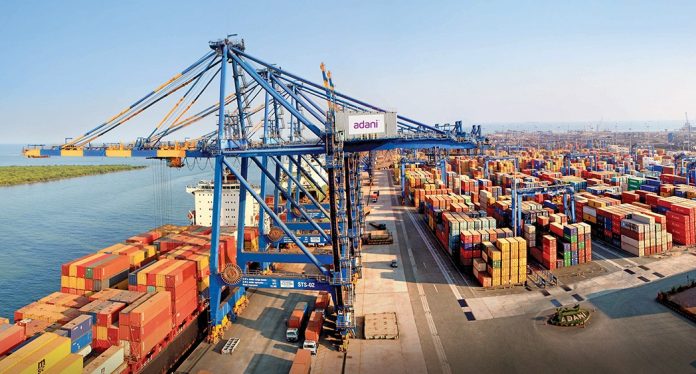In a significant trade development that presents some cost relief for Indian hinterland shippers amid high freight rates, Adani Ports and Special Economic Zone Limited (APSEZ) has eventually agreed to recall its notices seeking to levy extra user fees on container trains operating to/from Mundra Port, according to industry sources.
Mundra is the busiest container handler in India and freight loads out of inland container depots (ICDs) constitute a major portion (pegged at 50%) of its volumes.
The dispute — simmering since September 2020 — essentially involved two types of charges — a terminal access fee of Rs. 7,500 (US$94) and a detention levy of Rs. 5,000 (U$63) per hour on delayed train turnarounds.
The Association of Container Train Operators (ACTO), which spearheads the cause of private rail license holders, had strongly protested against this demand, calling it arbitrary and illegal, and refused to settle the claim raised on them despite Adani reportedly issuing several notices and threatening to even deny train operators access to the rail-sidings at Mundra.
“The issue has been resolved,” said an ACTO official. “The port is withdrawing the charges retroactively, we have been informed, but we are awaiting a formal notification.”
ACTO sources added that Adani’s decision to pull the move to impose additional charges followed a fresh round of stakeholder negotiations and government-level interventions. “It was based on discussions with ACTO,” the official noted.
ACTO previously argued the new charges were not in conformity with the concession agreement Adani has for Mundra and that train companies were only service providers for shipping lines serving the port.
“As train operators, we are not direct customers of the port. The shipping lines, which are the actual owners of containers and hold lien on the cargo, are the actual port customers with clear commercial relationships on services procured from the port for which they are usually charged on a per TEU basis,” ACTO earlier said in a letter to APSEZ.
ACTO further noted, “If at all the port wishes to recover any costs for service, it should accordingly be recovered from Lines as their actual customers, and not from Rail operators who are themselves service providers and not end users for cargo related services.”
Notably, a resolution to the above dispute comes as rail charges are seeing increases after Indian Railways removed some of the ad-hoc incentives and waivers implemented earlier to draw more freight to its network.
Jenny Daniel
Global Correspondent
Contact email: j.daniel@container-news.com







